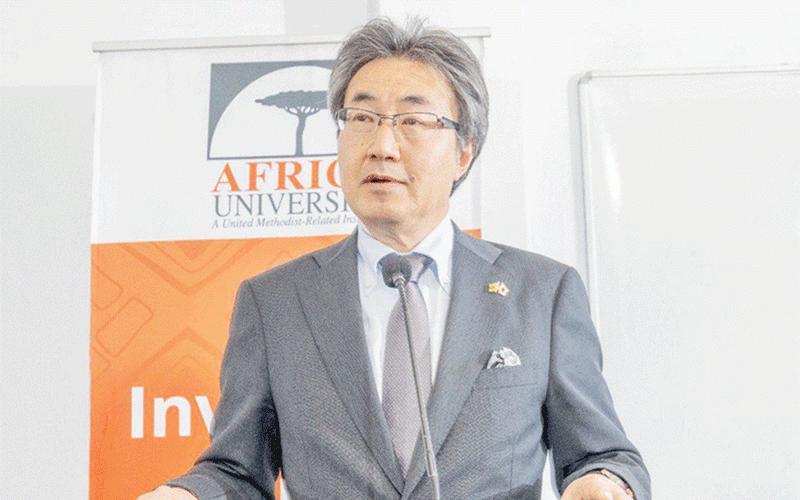Africa-Press – Zimbabwe. JAPAN has provided approximately US$6,9 million in funding to four United Nations (UN) agencies to strengthen maternal and child health, enhance food security, and other lifesaving interventions in Zimbabwe.
The funding to World Food Programme, United Nations Children’s Emergency Fund (Unicef), United Nations Development Programme (UNDP) and the United Nations Office for Project Services (UNOPS) is set to benefit over 86 000 people.
The projects are funded under Japan’s 2024 supplementary budget and the Tokyo International Conference on African Development.
The support is in response to the 2024 El Niño-induced drought, the worst in decades, which left over five million citizens in urgent need of food aid in the country.
President Emmerson Mnangagwa last year declared the drought a national disaster and sent out begging bowl requesting US$3 billion to help to avert hunger and starvation in the country.
“These initiatives aim to strengthen maternal and child health, prevent malnutrition, modernise medical waste management,” the report read.
The report said Unicef received approximately US$2 450 000, while UNDP was allocated US$1 500 000.
WFP received approximately US$800 000 and UNOPS US$2 200 000.
The report stated that the funding focuses on health and nutrition, poverty alleviation, food security and infrastructure towards Zimbabwe’s development.
“Japan is confident that these efforts will contribute significantly to advancing Sustainable Development Goals (SDGs) and improving the lives of Zimbabweans,” it read.
The funding will support WFP’s lean season assistance programme, providing three months of critical in-kind food assistance to over 17 000 people in rural communities severely affected by the El Niño-induced drought.
“This initiative directly addresses food insecurity and malnutrition during a period when Zimbabwe is facing its worst drought in decades,” the report said.
It highlighted the need for urgent improvement of water, sanitation and hygiene (WASH) services, especially in drought-affected and remote areas.
“Compounding the crisis, the country endured a cholera outbreak that affected thousands,” it read.
Unicef will collaborate in the RISE initiative, featuring Bebbo 360 — a mobile parenting app offering real-time, evidence-based guidance from pregnancy through to early childhood.
“The second (Unicef) project tackles child wasting in the drought-hit Mbire district. Thousands of caregivers will benefit from community-based support groups, improved health and nutrition services and access to clean water and vital information,” the report said.
“These initiatives align with Japan’s commitments under the Tokyo Nutrition for Growth Compact.”
UNOPS is expected to spearhead a comprehensive response to Zimbabwe’s medical waste management challenges.
“The project includes the procurement and installation of three high-temperature, smokeless medical waste incinerators in Harare and Bulawayo.
“They are expected to significantly improve safe disposal practices, reduce environmental hazards and build long-term technical capacity through training and technology transfer,” the report said.
UNDP, in partnership with the Japan SDGs Innovation Challenge, is piloting artificial intelligence and drone-based solutions to control quelea birds, which are a major threat to Zimbabwe’s small grain harvests.
“This environmentally-friendly, tech-driven approach supports innovation, policy dialogue and new livelihoods through collaboration with government, private sector, and research institutions,” the report read.
“These collaborative efforts reflect Japan’s continued leadership in health, innovation and climate resilience, as well as its long-standing partnership with the UN system to address both emergency needs and long-term development goals.”
Japan has previously provided humanitarian and development assistance to Zimbabwe, including during the COVID-19 pandemic and for infrastructural development in the health and education sectors.
For More News And Analysis About Zimbabwe Follow Africa-Press






